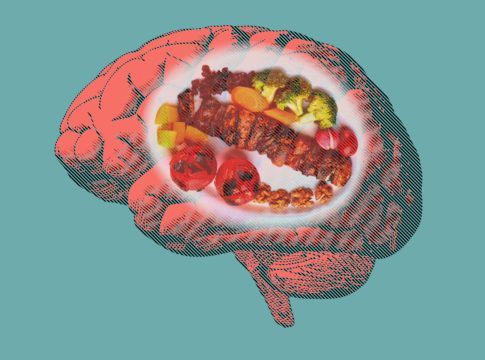Exploring the Connection Between Mental Health and Nutrition
As we navigate the journey of mental wellness, a surprising ally emerges—our diet. Recent insights suggest a significant connection between what we eat and how we feel mentally. Understanding this relationship can empower us to make informed choices for our well-being.
The Mind-Gut Connection
Recent research highlights the fascinating link between our brain and gut health. The gut hosts trillions of bacteria that play a crucial role in our overall health, including mental stability. These microbiomes produce neurotransmitters like serotonin, which is often referred to as the "feel-good" hormone. When our gut health falters, it can impact our mood and mental state.
Why should you care? A balanced gut flora can positively influence mental health, potentially reducing symptoms of anxiety and depression.
Nutrients That Matter
The food we consume directly affects our brain functionality. Key nutrients linked to enhanced mental health include:
- Omega-3 Fatty Acids: Found in fish, flaxseeds, and walnuts, these fats are crucial for brain health and have been shown to combat depression.
- B Vitamins: Present in green leafy vegetables, eggs, and whole grains, these vitamins play a role in producing brain chemicals that affect mood.
- Antioxidants: Foods rich in antioxidants, like berries and dark chocolate, protect brain cells and may help reduce inflammation.
Tip: Experiment with including these nutrient-dense foods in your diet for a potential uplift in mood.
Recognizing Dietary Imbalances
While dietary choices significantly influence our mental health, it’s vital to recognize that not every individual will respond the same way. Some signs that your diet may be impacting your mental wellness include:
- Increased feelings of anxiety or mood swings.
- Difficulty concentrating.
- Frequent fatigue.
If you notice these signs, consider how your diet may be contributing. It could be beneficial to consult a healthcare professional to explore your options.
Making Informed Dietary Changes
Changing your diet doesn’t have to feel overwhelming. Here are some gentle steps you can take:
-
Start Small: Introduce one healthy food item at a time. Perhaps begin with a daily serving of fruits or veggies.
-
Stay Hydrated: Don’t overlook the importance of hydration. Water supports cognitive function and overall health.
- Mindful Eating: Practice being present during meals. This can help you appreciate the nourishment you’re providing your body and mind.
Final Thoughts
Incorporating mindful eating habits and nutritious foods can serve as powerful tools in your mental health toolkit. While food alone isn’t a cure-all, it plays a pivotal role in nurturing our minds. By understanding the connection between what we eat and how we feel, we empower ourselves to take charge of our mental wellness journey.
Your mental health is worth the investment, and every small step you take in your dietary choices can lead to a more balanced and fulfilling life. Embrace this opportunity, and let nutrition help guide you towards mental well-being.

Covers wellness, nutrition, mental health, and daily life tips.
Bio: Talia brings a background in health journalism and holistic living to help readers live better, one tip at a time.

